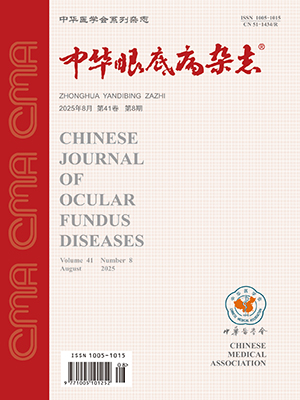Objective To examine the influence of retinal pigment epithelium(RPE) cells on antigen-specific activatedlymphocytes in vitro,and to explore the role of RPE cells in the immune privilege of the eye. Methods Co-culture systems of RPE cells with antigen-specific T lymphocyte lines and resting T lymphocytes were established in vitro.Induction of apoptosis was detected by genomic DNA electrophoresis,DNA in situ end-labelling and flow cytometry. Results RPE cells induced apoptosis in antigen-specific activated T lymphocytes. 24 hours after culture,the signs of apoptosis appeared in lymphocytes co-incubated with RPE cells.As time of co-culture went on,the number of apoptosic cells increased.Quantitative analysis of apoptosic cells showed that apoptosic cells accounted for 5.95% after 24 hours, 9.38% after 48 hours,and 17.95% after 72 hours.In contrast,RPE cells induced few apoptosis in resting T lymphocytes. Conclusions These results suggest that RPE cells possess the ability to induce the apoptosis of invading lymphocytes. This phenomenon serves as a restrain mechanism of immune response and may be of vital importance in the maintenance of immune privilege in posterior segment of eye and in the protection of eye from the damage of immunogenic inflammation. (Chin J Ocul Fundus Dis, 1999, 15: 241-244)
Citation: PENG Guanghua,LI Zhijie,LI Chen. Apoptosis of activated lymphocytes induced by retinal pigment epithelial cells in vitro. Chinese Journal of Ocular Fundus Diseases, 1999, 15(4): 241-244. doi: Copy
Copyright © the editorial department of Chinese Journal of Ocular Fundus Diseases of West China Medical Publisher. All rights reserved




